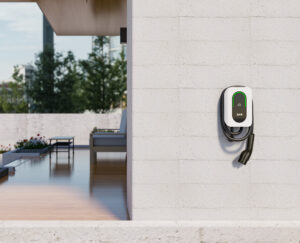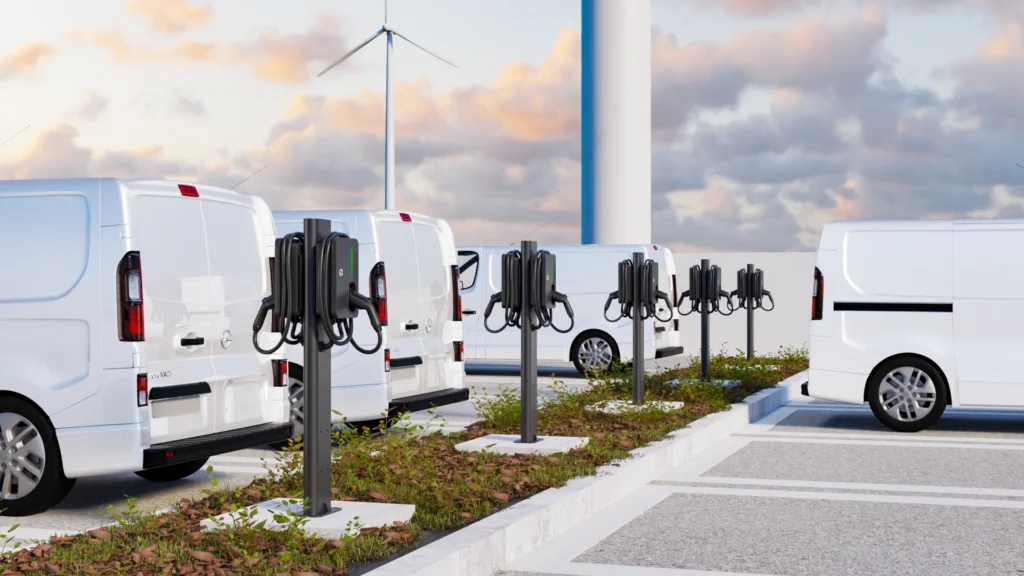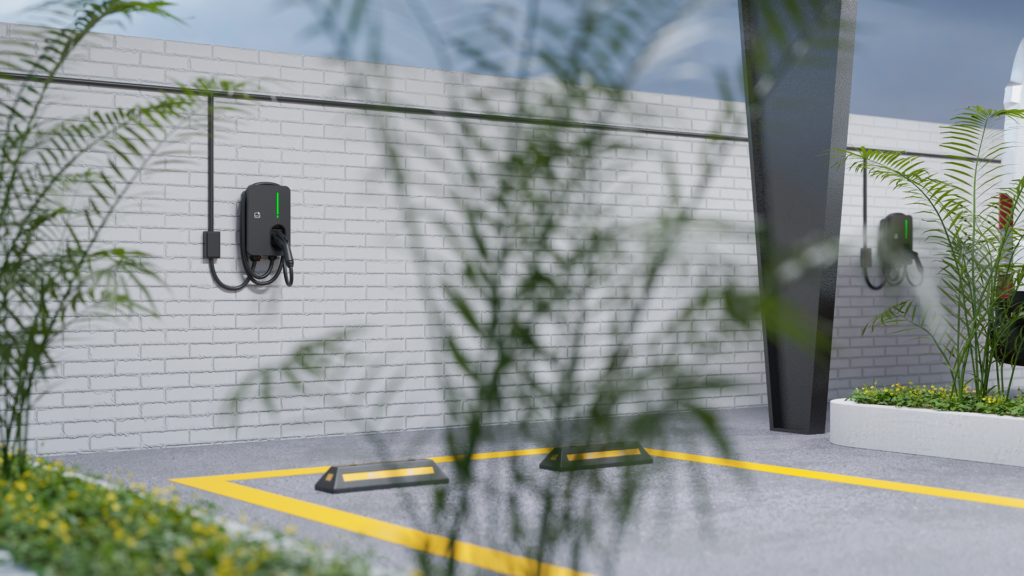
Vehicle-to-Grid (V2G): The Future of EV Charging and a Smarter Energy Grid
Vehicle-to-Grid technology is redefining the role of electric vehicles, turning them into dynamic energy assets that benefit drivers, utilities, and the planet.

Managing an electric vehicle (EV) fleet comes with its own set of challenges, and one of the most critical is ensuring that vehicles are charged efficiently to minimize downtime and maximize productivity. Efficient EV charging not only keeps your fleet ready for the road but also helps reduce operational costs, optimize energy use, and enhance overall fleet performance.
In this blog, we’ll explore proven strategies to improve EV charging efficiency for fleet operations. Whether you’re managing a delivery fleet, rideshare vehicles, or a corporate EV pool, these tips will help you get the most out of your charging infrastructure.
For fleet operators, efficiency is the cornerstone of success. Delays in charging or inefficiencies in power management can lead to increased costs, missed schedules, and lower customer satisfaction. By improving charging efficiency, fleet operators can:
Charging at the right time can make a significant difference in efficiency. Fleet operators should consider implementing scheduled charging to take advantage of off-peak electricity rates. Many energy providers offer lower rates during non-peak hours, typically at night or early morning.
This approach not only reduces costs but also ensures that vehicles are charged and ready when required, preventing unnecessary downtime.
While Level 2 chargers are sufficient for many fleets, there are scenarios where DC fast chargers can significantly improve efficiency. DC fast chargers can recharge a vehicle in a fraction of the time it takes a Level 2 charger, making them ideal for fleets with high daily utilization or tight turnaround requirements.
However, fast chargers also consume more power, which can lead to higher energy costs if used excessively. To strike the right balance:
Smart energy management systems are a game-changer for fleet operators looking to improve EV charging efficiency. These systems monitor and manage energy use across the entire charging network, enabling operators to:
Investing in a smart charging platform ensures that your fleet uses energy effectively, cutting costs while maintaining reliability.
Older chargers may lack the efficiency and features of modern charging stations. Upgrading your infrastructure can significantly improve efficiency and performance. Look for chargers that offer:
When upgrading, consider scalability. Choose a solution that can grow with your fleet to avoid costly overhauls in the future.
Efficient charging isn’t just about the hardware; it’s also about how it’s used. Educating your drivers on best practices can make a big difference in overall efficiency.

(Joint EVH007 EV Fleet Charging Solutions)
Data-driven insights are essential for optimizing charging efficiency. Modern charging systems provide a wealth of information that fleet operators can use to improve operations, including:
Regularly reviewing this data helps fleet operators identify inefficiencies and implement solutions to address them.
For fleet operators with sustainability goals, integrating renewable energy sources like solar or wind into your charging infrastructure can boost efficiency while reducing environmental impact.
While the upfront costs of renewable systems may be higher, the long-term savings and environmental benefits make them a worthwhile investment.
Efficiency begins with selecting the right EV charger supplier. Look for a partner that offers:
A reliable charging partner can help you optimize every aspect of your charging infrastructure, from installation to ongoing operations.
Improving EV charging efficiency isn’t just about cutting costs; it’s about creating a seamless, reliable, and scalable system that supports your fleet’s operations. By adopting smart charging practices, leveraging advanced energy management tools, and partnering with the right supplier, fleet operators can ensure their EV charging infrastructure is optimized for success.
As the adoption of electric vehicles continues to grow, now is the time to invest in efficient charging solutions that keep your fleet ahead of the curve. With the right strategy and tools in place, you’ll be able to maximize uptime, reduce costs, and contribute to a more sustainable future.

Vehicle-to-Grid technology is redefining the role of electric vehicles, turning them into dynamic energy assets that benefit drivers, utilities, and the planet.

At this ACT Expo, Joint Tech will unveil its latest advanced commercial Level 2 charging solution, designed to enhance the user experience. Meanwhile,powered by new technology, our commercial chargers effectively address multiple challenges encountered in real-world applications.

The new tariffs imposed by the United States have once again caused global economic tension.In order to respond to the impact on the global supply chain, Joint new factory in Malaysia offers favorable tax rates.